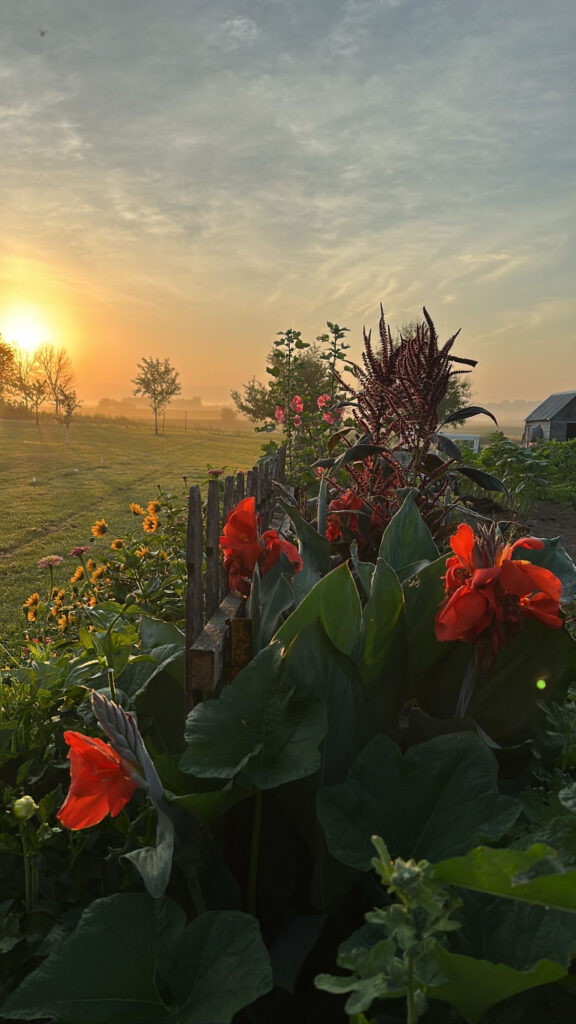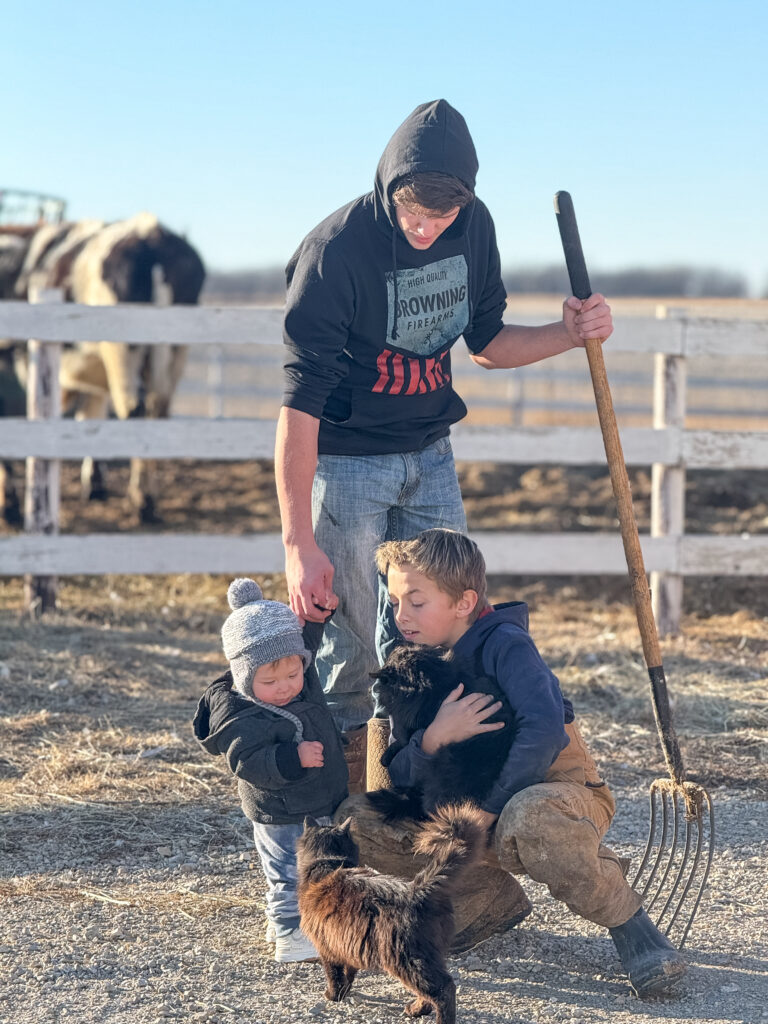
Its clear to see when we spell it all out that way, that the homesteading homemaker requires a sort of superhuman strength and ability especially for those that are first generation homesteading-homemakers. Very few of you have had the luxury of standing at the elbow of your parents and grandparents and having these skills passed to you the straightforward way. You are the generation that has been left to comb the internet for the skills you want. You then refine these skills with one mistake after the next instead of refining them with gentle correction of a parent or grandparent. And most of you are learning all the things while having babies and raising families.
Whether you are a homemaker who is picking up a few homesteading skills or a full-fledged homesteading-homemaker or even someone who is learning basic homemaking skills, there is one basic skill that, once mastered, instantly helps turn any property/house into a home.
The skill that, once mastered, instantly helps turn any property/house into a home.
The skill of being able to prioritize your time and energy.
First there is daily, sometimes hourly, prioritizing, and then weekly prioritizing and then the monthly and yearly prioritizing.
My priorities fit into three categories:
Emotional Well Being,
Nutrition and Environment,
Housekeeping.
Emotional wellbeing of the Family is the highest on the list of priorities because this is the one that has the biggest impact on a family’s future and the future generations of the family.
If our goal is to raise emotionally stable children that grow to be adults who are not only a blessing to their communities but lead the kind of life that brings glory and honor to their heavenly Father, then the emotional well being of our family should be a top priority. Those years with little ones feel like they are going to go on forever when you are prioritizing emotional needs. You feel like you are never going to have time for anything except wiping tears, wiping bottoms, and wiping noses. It is hard to sit on the rocking chair with the babies and not feel like you should be weeding the garden or building a fence for the family milk cow. But that is just the thing with prioritizing, when we prioritize, we are really creating a gift for our future selves. If you prioritize the emotional needs of the family, you will find it a blessing when emotionally stable children surround you and help in every area of the homestead.
That newborn with the intense need for constant movement and touch, grows up to be a capable 6-year-old who insists on being included in every job you are doing and believes he knows enough to keep the homestead running in your absence because he has never left your side and therefore never missed a thing.
The 18 month old who came into our home as a foster child, with little to no nurturing and took more than 12 month of intense prioritizing before we began to see signs of some emotional attachment, this child has grown to be the most in tune with the animals and the most nurturing on the homestead and at 10 years old is a wonderful asset to the family and homestead.
These are just two examples of the most intense emotional needs we have experienced as a family. These two examples are a constant reminder to me that prioritizing the emotional needs during those intense years was a gift to present day me.
The emotional needs of my family are still a priority to me even though they do not consume as much of my time now that our baby is 6 years old. It looks more like being willing to lay down my garden hoe for 10 minutes to help settle an argument between siblings or having a hard conversation with a preteen while we sit on opposite sides of the family milk cow, working together to fill the bucket with frothy milk. It looks more like leaving the rest of the weeding for another day because the family has asked me to play a game of back yard baseball with them.

The keeping of a tidy home has been deeply ingrained into me by my mom and grandma, the amount of housekeeping that I helped with while growing up seemed endless! All the while we were washing down walls and deep cleaning closets they would lecture about the importance of good housekeeping. It took me quite a few years and quite a more than two children underfoot until I was able to drown out these lectures with my own priorities. The lectures and training served to set my standard for housekeeping and I am extremely grateful for the skills I have in this area. But what I had to learn for myself is that there is a season for everything, and since a tidy house and homestead do not create an emotionally healthy family, I had to learn to let this priority slide down the list. Over the years I have learned exactly the level of messy and chaos I can manage and still be a present and relaxed parent. I have learned exactly how large of a laundry pile I can ignore while sitting on the rocking chair enjoying a baby. I have learned what my limit of dirty dishes is and how weedy of a garden I can tolerate. I have learned that the cow will still give me milk even if my barn is not as tidy as my dad’s barn was. The most important thing I have learned about housekeeping/homestead keeping is to make the level of tidy my own standard and not that of my mother and grandmother.
When I prioritize, I do not stress over mess and chaos unless it affects my ability to meet, first the emotional needs and then the nutritional needs of my family.
If the messy barn is taking away my joy of the Family milk cow and I no longer want to spend time out there, caring for her properly, then it is time for me to make cleaning the barn a priority. If the large pile of laundry and dishes is stressing me out to the point that I cannot be a pleasant and relaxed parent while I play a game with the family then it is time to prioritize the laundry and dishes because it is affecting the peaceful environment of our home.
List your priorities, keep them simple and then be vigilant about fitting your daily actions under one category. Be careful and watchful of the changing needs of your family and be prepared to switch gears, be ok with switching gears, even when there is little to no notice.
Once you have this skill of prioritizing, down pat, the home and homestead take on a wonderfully comfortable rhythm, this comfortable rhythm is maintained by your skill of being able to prioritize and is what makes a home and homestead hum right along through the seasons, through hard days and tough weeks, this comfortable rhythm brings healing and resilience to your family. When you maintain this comfortable rhythm, you create a home that becomes a sanctuary and safe landing place for all those that were blessed to grow up within the walls of the home you created.
As an Amazon Associate I earn from qualifying purchases.
COPYRIGHT © 2025 RUTHANN ZIMMERMAN
Made with ♡ by Porter Homestead Designs